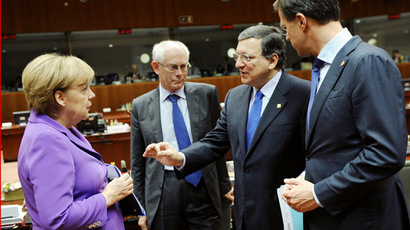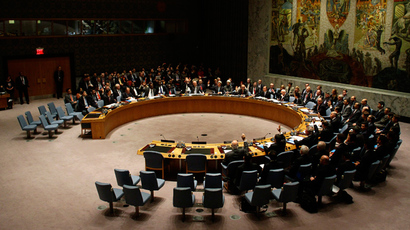Spain to US: Mass phone-tapping ‘inappropriate and unacceptable’

Spanish officials have held an emergency meeting with the US ambassador and say that the relationship between the two countries will be severely damaged, if newspaper revelations that the NSA tracks 60 million Spanish phone calls a month are confirmed.
"Spain has relayed to the United States the importance of
preserving a climate of trust...and its interest in understanding
the full reach of practices that, if true, would be considered
inappropriate and unacceptable between allies,” said a
statement from the foreign ministry, after US. Ambassador James
Costos was forced to explain his country’s actions to Spain's
Secretary of State for the European Union, Inigo Mendez de Vigo.
"We will continue to confer with our allies, such as Spain,
through our regular diplomatic channels to address the concerns
that they have raised," Costos assured, after the formal
summoning, which usually serves as a gesture of reproach in
international diplomacy.
The audience was called following Monday’s revelations in daily
El Mundo that between December 10 last year
and January 8, NSA recorded details of over 60.5 million Spanish
calls. The information was reportedly obtained from NSA
whistleblower Edward Snowden.
The data allegedly stored on NSA servers did not include the
content of the calls, but did list the numbers of both parties,
the time and length of the calls, and the location from which
they were made. It is not clear if the so-called metadata was
intercepted with surveillance equipment or obtained from phone
providers.
The latest leak follows similar revelations about Italy, France
and Germany. The latter two are some of a handful countries that
have also summoned their respective US ambassadors.
The publication comes at a sensitive time, as European countries
are also involved in drafting a United Nations General Resolution that
will term “indiscriminate” surveillance of millions of
people a violation of human rights.
A European Union delegation was also in Washington to discuss the
fallout from the unceasing stream of disclosures about the scale
of US electronic surveillance. The EU may seek an official
“no-spy” agreement with the United States.
Up to now, Spain has been reluctant to endorse the deal proposed
by the other European powers.
During last week’s EU meeting Prime Minister Mariano Rajoy said
“France and Germany have decided to do one thing and the rest
of us may decide to do the same, or something else." The
conservative politician also claimed that he had no evidence if
the US had spied on Spain at all.
This cautiousness in the face of mounting evidence could be
explained by the fact that rather than being violated by NSA
spying, Spain is actually complicit in it, and may already have a
working agreement with Washington.
On Monday the daily El Pais reported that former Prime Minister
Jose Maria Aznar struck a deal with George W Bush, in the wake of
9/11, which allowed the US to freely spy on Spanish territory in
exchange for providing high-tech surveillance equipment for
Spanish intelligence.














